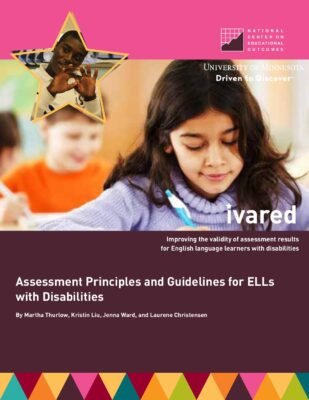Resource Hub
Explore guides, research papers, policy briefs, and tools to aid decisions on standards and assessments.
Assessment Principles and Guidelines for ELLs with Disabilities
Published by the National Center on Educational Outcomes, this document looks at improving the validity of assessment results for English language learners with disabilities. This report presents five core principles of valid assessments for this population of students, along with a brief rationale and specific guidelines that reflect each principle. Principle 1: Content standards are the same for all students. Principle 2: Test and item development include a focus on access to the content, free from bias, without changing the construct being measured. Principle 3: Assessment participation decisions are made on an individual student basis by an informed IEP team. Principle 4: Accommodations for both English language proficiency (ELP) and content assessments are assigned by an IEP team knowledgeable about the individual student’s needs. Principle 5: Reporting formats and content support different uses of large-scale assessment data for different audiences.


Written and guided by a well known number of national experts, this resource should be on a must-read list for its intendend audiences working in the ELL or students with disabilities fields, including state department administrators, measurement experts, test developers and district leaders. The guidelines are reasonable, accurate, and effectively communicated in a modest amount of verbage. The only criticisms are that the introduction reads a bit like a research report and that the graphic design is average-looking, but the remainder of the principles and guidelines easily makes up for these small shortcomings. Further, this is one of the few publications that addresses the needs of a rather unique but important population, ELLs with disabilities. That it does so as well as it does makes it a very important educational resource.